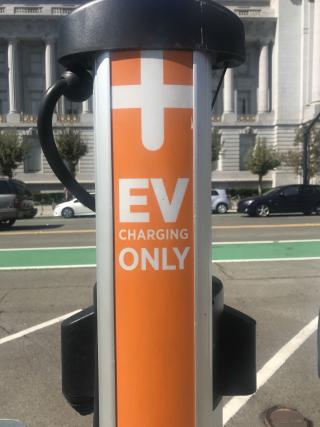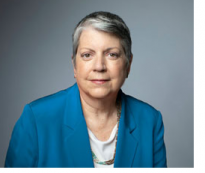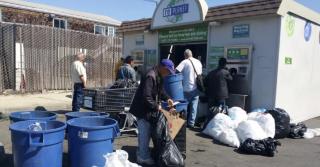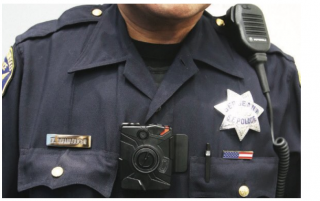California's First College Admissions Reform Bill Sent to the Governor Is Signed
(Sacramento) – As a result of Governor Newsom’s signature today on AB 697, California will soon begin requiring colleges to disclose preferential admissions practices to the state. Under the legislation by Assemblymember Phil Ting (D-San Francisco), the data must detail whether any of the school’s admitted students have a relationship to a donor or alumni, and how many of these students did not otherwise meet the criteria for admission.
“We must strive for a level playing field in the college admissions process, so there can be equal opportunity for all,” said Ting. “We should know how prevalent donor and alumni-based preferential treatment is in California, so we can compare that to the amount of state-funded benefits, like CalGrants, flowing toward the school.”
 In March, a handful of Assembly Democrats unveiled a package of six college admissions reform proposals in response to the scandal dubbed “Operation Varsity Blues.” That investigation found that well-connected families used a side door to get their typically unqualified children admitted into elite schools through illegal bribes, donations and/or falsified SAT scores. Additionally, the scandal shed light on the many legal ways that wealth and relationships skew the college admissions process. AB 697 was California’s first reform measure to reach the Governor’s desk.
In March, a handful of Assembly Democrats unveiled a package of six college admissions reform proposals in response to the scandal dubbed “Operation Varsity Blues.” That investigation found that well-connected families used a side door to get their typically unqualified children admitted into elite schools through illegal bribes, donations and/or falsified SAT scores. Additionally, the scandal shed light on the many legal ways that wealth and relationships skew the college admissions process. AB 697 was California’s first reform measure to reach the Governor’s desk.
Two other bills from that package were also signed by the Governor today:
- AB 1383 - strengthens checks and balances on special admissions by exception (McCarty)
- AB 136 - prohibits fraudulent tax write-offs for individuals charged in the scandal (Quirk-Silva)
Ting’s AB 697 will take effect January 1, 2020, with data from the 2019-20 school year required to be released by June 30, 2020.
 Assemblymember Phil Ting (D-San Francisco), author of AB 40 and other legislation intended to address the climate crisis, released the following statement about the Governor’s Climate Executive Order. Ting’s statement is as follows:
Assemblymember Phil Ting (D-San Francisco), author of AB 40 and other legislation intended to address the climate crisis, released the following statement about the Governor’s Climate Executive Order. Ting’s statement is as follows: Amidst today’s action by the Trump Administration revoking the federal waiver that permits California to set its own strict air pollution controls, Assemblymember Phil Ting (D-San Francisco) called on California to step up its effort to further reduce greenhouse gas (GHG) emissions by proposing changes to how the state’s clean car rebates are given out. Ting’s measure, AB 40, represents a legislative effort that comes as the United Nations Climate Action Summit begins Monday, where world leaders are expected to bring concrete action plans to accelerate the progress they are making on addressing climate change.
Amidst today’s action by the Trump Administration revoking the federal waiver that permits California to set its own strict air pollution controls, Assemblymember Phil Ting (D-San Francisco) called on California to step up its effort to further reduce greenhouse gas (GHG) emissions by proposing changes to how the state’s clean car rebates are given out. Ting’s measure, AB 40, represents a legislative effort that comes as the United Nations Climate Action Summit begins Monday, where world leaders are expected to bring concrete action plans to accelerate the progress they are making on addressing climate change.  Assemblymember Phil Ting (D-San Francisco), Chair of the Assembly Budget Committee, released the following statement about the resignation of UC President Janet Napolitano. Ting’s statement is as follows:
Assemblymember Phil Ting (D-San Francisco), Chair of the Assembly Budget Committee, released the following statement about the resignation of UC President Janet Napolitano. Ting’s statement is as follows:
 AB 54 allocates $5 million to implement a mobile recycling pilot program administered by CalRecycle. Under the pilot program, local governments, non-profits and others can apply for one of five grants to expand recycling opportunities in areas severely impacted by the rePlanet closures. At least one pilot location must be in a rural area. Ting’s bill also ensures roving redemption centers are open at least eight hours during the weekend when demand for services is highest, while relaxing other administrative requirements to streamline operations. In addition to AB 54, the 2019-20 state budget previously included another $5 million to help more than 400 low-volume recycling centers stay open.
AB 54 allocates $5 million to implement a mobile recycling pilot program administered by CalRecycle. Under the pilot program, local governments, non-profits and others can apply for one of five grants to expand recycling opportunities in areas severely impacted by the rePlanet closures. At least one pilot location must be in a rural area. Ting’s bill also ensures roving redemption centers are open at least eight hours during the weekend when demand for services is highest, while relaxing other administrative requirements to streamline operations. In addition to AB 54, the 2019-20 state budget previously included another $5 million to help more than 400 low-volume recycling centers stay open. California could become the largest state to protect civil liberties by banning facial recognition technology in police body cameras. The California State Assembly today sent Governor Newsom AB 1215, a proposal by Assemblymember Phil Ting (D-San Francisco) that prohibits law enforcement from equipping body cameras with facial recognition software and other biometric scanners for three years.
California could become the largest state to protect civil liberties by banning facial recognition technology in police body cameras. The California State Assembly today sent Governor Newsom AB 1215, a proposal by Assemblymember Phil Ting (D-San Francisco) that prohibits law enforcement from equipping body cameras with facial recognition software and other biometric scanners for three years.